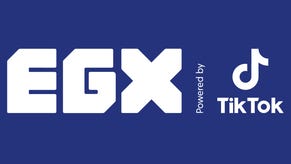Call of Duty Xbox exclusivity "wouldn't be profitable", Microsoft says
Corporate warfare.
Making Call of Duty exclusive to Xbox "simply wouldn't be profitable", Microsoft has said.
The claim comes as part of a fresh war of words between Xbox and PlayStation, as Microsoft seeks to finalise its eye-opening $68.7bn buyout of Activision Blizzard.
Specifically, it comes in response to Sony's recent objections to the deal - in which it argued that Call of Duty could not be rivalled, and that the franchise was vitally important to PlayStation as it influenced players' choice of console.
Microsoft previously said it had no immediate plans to make Call of Duty an Xbox exclusive, and has now doubled down on this by adding that it did not make business sense.
"The reality is that the strategy of retaining Activision's games by not distributing them in rival console stores would simply not be profitable to Microsoft," the company wrote in documentation made public by Brazilian authorities.
That's not to say it could never be profitable, Microsoft continued - before adding that such a situation still seemed unlikely due to additional "costs" involved (details of which remain redacted).
Put together, these costs and "lost sales" from not releasing a game on other platforms - for example pulling Call of Duty from PlayStation - meant the whole thing would not be worth it, Microsoft said.
"Such costs, in addition to the lost sales estimated... above, mean that Microsoft would not be able to make up for the losses by earning more via the Xbox ecosystem as a result of implementing exclusivity," it continued.
"This is especially true considering (i) the 'gamer-centric' - rather than 'device-centric' - strategy that Microsoft has pioneered with Game Pass, and (ii) the fact that PlayStation has the most loyal users across its various generations, with every indication that brand loyalty accrued in previous rounds of the 'console wars' suggests that PlayStation will continue to have a strong market position."
The bottom line here is Microsoft again trying to shrug off any claim by Sony that its $68.7bn deal will affect PlayStation unfairly - and at the same time trying to dodge any whiff of the deal being scuppered by anti-competition laws.
The reason we're able to see this back-and-forth publicly is due to Brazilian regulations, which ask other companies potentially affected by corporate transactions to comment on said deals, the results of which are then posted online (albeit with some redacted passages).
Other details brought to light include an eye-opening claim by Microsoft that Sony pays developers "blocking rights" to keep titles off Xbox Game Pass. That claim forms another front in Microsoft's rebuttal to Sony over the Activision Blizzard deal being anti-competitive - where Microsoft is clearly suggesting Sony is engaged in similarly tactical business practices itself.






.png?width=291&height=164&fit=crop&quality=80&format=jpg&auto=webp)


